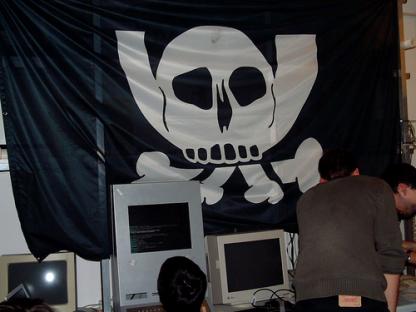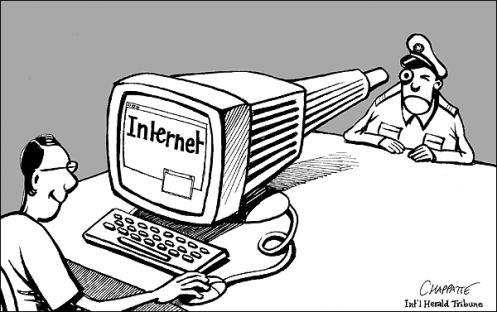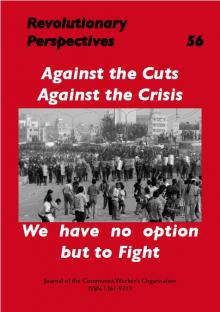You are here
Home ›Wikileaks and the Limits of Capitalist Free Speech
At the end of November last year, the contents of US State Department diplomatic cables began to appear in various newspapers throughout the world. These cables had previously been anonymously leaked to the web based media organisation ‘Wikileaks’ which then entered into a deal with five “reputable” newspapers; The Guardian, New York Times, Le Monde, Der Spiegel and El Pais to publish them. Around two hundred and fifty thousand cables from around 250 US embassies and consulates have been made available for publication ranging in type from unclassified to secret, although ‘secret’ documents are accessible by more than three million US citizens. Documents of the highest order of confidentiality do not appear to have been included in the leak.
It is clear that this episode, now predictably referred to as ‘Cablegate’ has caused profound embarrassment for the US administration but whether it has caused any actual damage to US interests is unlikely. Perhaps the most significant leak was the revelation that Saudi Arabia and other Arab states had urged the US to launch an attack on Iran’s nuclear development facilities.
However it is arguable that such a revelation actually serves American interests by indicating that the mandate for such an attack is wider than might have been imagined. Other significant leaks include a list of the world’s most strategically important sites and installations for American interests, and video evidence that indicates deliberate targeting of civilians by US forces in Iraq. However it would appear that the majority of the leaks including insulting remarks about various foreign politicians and diplomats, whilst embarrassing, are not of great significance.
Not surprisingly, the US administration reacted furiously to the leaks.
Wikileaks was accused of everything from irresponsibility to treason. The Wikileaks website was kicked off several servers and there have been calls from Congress for the extradition and prosecution of Assange who is now in England, although it is not clear what offence has been committed under US law. By a bizarre ‘co-incidence’ allegations arose that suggested that Assange may have been involved in some sort of sexual peccadillo in Sweden which may possibly amount to sexual assault under Swedish law but almost certainly would not be an offence under English law. Apparently, prior to the US cable leaks, Assange had been questioned by the Swedish police about these allegations but released without charge. However once the leaks were out, it appears that the Swedish authorities came to realise that the alleged crime was of such a heinous nature that it merited the issue of a European arrest warrant. When Assange challenged his extradition to Sweden, he was initially remanded in custody and had to appeal to the High Court to obtain bail pending the extradition hearing. It seems highly likely that the criminal charges are politically motivated as European arrest warrants are not usually issued for offences of a relatively minor nature such as those alleged against Assange.
Although he is certainly no proletarian militant, this harassment of Assange is a reminder, if one is needed, of the limits of bourgeois democracy even in its most ‘liberal’ states such as Sweden.
Whilst Assange sits out his bail in the comfort of the country estate owned by one of his wealthy supporters, Bradley Manning has been sitting solitary confinement in a military prison in Quantico, Virginia for seven months in conditions which according to his supporters amount to torture.
Manning, a twenty three year old intelligence analyst with the US military in Iraq is accused of providing Wikileaks with the ‘Collateral Murder’ video that shows Iraqi civilians being killed by the US army, an act which strongly indicates the commission of a war crime. The accusation is based on an alleged ‘confession’ made by Manning in an online chatroom although the circumstances of this alleged confession are dubious. Julian Assange claims that Manning’s continued detention in solitary is an attempt by the US military to force him to confess to a conspiracy with Wikileaks to disclose US state secrets, which in turn could provide grounds for charges against Assange. If convicted Manning could face 52 years in prison.
Wikileaks claims to be not for profit media organisation whose ‘goal is to bring important news and information to the public’. Since the recent ‘Cablegate’ disclosures, Wikileaks and its co-founder Julian Assange have become news themselves, reviled by the US state and it’s allies, but feted as champions of free speech by liberals and many on the left.
As communists it is reasonable to ask ourselves the question whether ‘Cablegate’ and its ramifications are any concern of the working class.
The secret machinations of the state have historically been of concern to the workers’ movement. Following the October Revolution one of the first acts of the Bolsheviks was to make good their pledge to publish the secret treaties made by the Tsarist and Provisional Governments with the entente powers. The contents of these treaties included the plans of the entente powers to carve up the world between them once the First World War was over. On 22 November 1917 Trotsky issued a statement on the Bolsheviks decision to make these documents public:
"In publishing the secret diplomatic documents from the foreign policy archives of Tsarism and of the bourgeois coalition Governments of the first seven months of the revolution, we are carrying out an undertaking which we made when our party was in opposition. Secret military diplomacy is a necessary tool for a propertied minority which is compelled to deceive the majority in order to subject it to its interests. Imperialism, with its dark plans of conquest and its robber alliances and deals, developed a system of secret diplomacy to the highest level... The Russian people, and the peoples of Europe and the whole world, should learn the documentary truth about the plans forged in secret by the financiers and the industrialists together with their parliamentary and diplomatic agents."
This statement could quite easily be written today to reflect our current circumstances. It is of course still in the interests of workers to expose the secret deals and plans made by the bourgeoisie and although they are not part of the workers’ movement, organisations such as Wikileaks can still be useful up to a point from a working class perspective. However these are essentially bourgeois organisations who despite their claims to impartiality may well be selective about the information they release. Unlike 1917, the contemporary proletarian struggle must also embrace the struggle for control of cyberspace.
This has become clearer in more recent days as the Tunisian authorities have done everything to ensure that information about the number of people shot dead (which may already be more than 40) by the armed police don’t make it to the outside world.
The European Union winks at the authoritarian regime of Zine Ben Ali who has been in power since a coup 29 years ago. Tunisia already has a favoured trading status with the EU (a reward for ensuring that few migrate to Europe).
The consequences of this are massive unemployment and underemployment (officially 14% but known to be nearer double this). In deference to EU interests the official media in Europe have hardly featured the riots which broke out before Christmas. It is only the pressure from individuals sending images via mobile phones that is forcing coverage at all. And the same can be said to be true of any situation where an authoritarian regime is trying to hide its own atrocities (as in Iran in 2009). In the Tunisian case the passage of information has seen the riots copied in other Arab countries starting with Algeria but also involving Mauretania, Morocco, Egypt and Syria.
After years of both economic and political stagnation the Arab regimes may yet be entering a new period of unrest if not “intifada”.
We can be sure too that the ruling classes around the world are also working on their next step. Not only on how to commit cyber sabotage as part of imperialist rivalry (as happened to Iran’s nuclear sector in 2010) but also how to turn the technology against their own populations in order to maintain control of the class war.
PBDRevolutionary Perspectives
Journal of the Communist Workers’ Organisation -- Why not subscribe to get the articles whilst they are still current and help the struggle for a society free from exploitation, war and misery? Joint subscriptions to Revolutionary Perspectives (3 issues) and Aurora (our agitational bulletin - 4 issues) are £15 in the UK, €24 in Europe and $30 in the rest of the World.
Revolutionary Perspectives #56
Start here...
- Navigating the Basics
- Platform
- For Communism
- Introduction to Our History
- CWO Social Media
- IWG Social Media
- Klasbatalo Social Media
- Italian Communist Left
- Russian Communist Left
The Internationalist Communist Tendency consists of (unsurprisingly!) not-for-profit organisations. We have no so-called “professional revolutionaries”, nor paid officials. Our sole funding comes from the subscriptions and donations of members and supporters. Anyone wishing to donate can now do so safely using the Paypal buttons below.
ICT publications are not copyrighted and we only ask that those who reproduce them acknowledge the original source (author and website leftcom.org). Purchasing any of the publications listed (see catalogue) can be done in two ways:
- By emailing us at uk@leftcom.org, us@leftcom.org or ca@leftcom.org and asking for our banking details
- By donating the cost of the publications required via Paypal using the “Donate” buttons
- By cheque made out to "Prometheus Publications" and sending it to the following address: CWO, BM CWO, London, WC1N 3XX
The CWO also offers subscriptions to Revolutionary Perspectives (3 issues) and Aurora (at least 4 issues):
- UK £15 (€18)
- Europe £20 (€24)
- World £25 (€30, $30)
Take out a supporter’s sub by adding £10 (€12) to each sum. This will give you priority mailings of Aurora and other free pamphlets as they are produced.
ICT sections
Basics
- Bourgeois revolution
- Competition and monopoly
- Core and peripheral countries
- Crisis
- Decadence
- Democracy and dictatorship
- Exploitation and accumulation
- Factory and territory groups
- Financialization
- Globalization
- Historical materialism
- Imperialism
- Our Intervention
- Party and class
- Proletarian revolution
- Seigniorage
- Social classes
- Socialism and communism
- State
- State capitalism
- War economics
Facts
- Activities
- Arms
- Automotive industry
- Books, art and culture
- Commerce
- Communications
- Conflicts
- Contracts and wages
- Corporate trends
- Criminal activities
- Disasters
- Discriminations
- Discussions
- Drugs and dependencies
- Economic policies
- Education and youth
- Elections and polls
- Energy, oil and fuels
- Environment and resources
- Financial market
- Food
- Health and social assistance
- Housing
- Information and media
- International relations
- Law
- Migrations
- Pensions and benefits
- Philosophy and religion
- Repression and control
- Science and technics
- Social unrest
- Terrorist outrages
- Transports
- Unemployment and precarity
- Workers' conditions and struggles
History
- 01. Prehistory
- 02. Ancient History
- 03. Middle Ages
- 04. Modern History
- 1800: Industrial Revolution
- 1900s
- 1910s
- 1911-12: Turko-Italian War for Libya
- 1912: Intransigent Revolutionary Fraction of the PSI
- 1912: Republic of China
- 1913: Fordism (assembly line)
- 1914-18: World War I
- 1917: Russian Revolution
- 1918: Abstentionist Communist Fraction of the PSI
- 1918: German Revolution
- 1919-20: Biennio Rosso in Italy
- 1919-43: Third International
- 1919: Hungarian Revolution
- 1930s
- 1931: Japan occupies Manchuria
- 1933-43: New Deal
- 1933-45: Nazism
- 1934: Long March of Chinese communists
- 1934: Miners' uprising in Asturias
- 1934: Workers' uprising in "Red Vienna"
- 1935-36: Italian Army Invades Ethiopia
- 1936-38: Great Purge
- 1936-39: Spanish Civil War
- 1937: International Bureau of Fractions of the Communist Left
- 1938: Fourth International
- 1940s
- 1960s
- 1980s
- 1979-89: Soviet war in Afghanistan
- 1980-88: Iran-Iraq War
- 1982: First Lebanon War
- 1982: Sabra and Chatila
- 1986: Chernobyl disaster
- 1987-93: First Intifada
- 1989: Fall of the Berlin Wall
- 1979-90: Thatcher Government
- 1980: Strikes in Poland
- 1982: Falklands War
- 1983: Foundation of IBRP
- 1984-85: UK Miners' Strike
- 1987: Perestroika
- 1989: Tiananmen Square Protests
- 1990s
- 1991: Breakup of Yugoslavia
- 1991: Dissolution of Soviet Union
- 1991: First Gulf War
- 1992-95: UN intervention in Somalia
- 1994-96: First Chechen War
- 1994: Genocide in Rwanda
- 1999-2000: Second Chechen War
- 1999: Introduction of euro
- 1999: Kosovo War
- 1999: WTO conference in Seattle
- 1995: NATO Bombing in Bosnia
- 2000s
- 2000: Second intifada
- 2001: September 11 attacks
- 2001: Piqueteros Movement in Argentina
- 2001: War in Afghanistan
- 2001: G8 Summit in Genoa
- 2003: Second Gulf War
- 2004: Asian Tsunami
- 2004: Madrid train bombings
- 2005: Banlieue riots in France
- 2005: Hurricane Katrina
- 2005: London bombings
- 2006: Comuna de Oaxaca
- 2006: Second Lebanon War
- 2007: Subprime Crisis
- 2008: Onda movement in Italy
- 2008: War in Georgia
- 2008: Riots in Greece
- 2008: Pomigliano Struggle
- 2008: Global Crisis
- 2008: Automotive Crisis
- 2009: Post-election crisis in Iran
- 2009: Israel-Gaza conflict
- 2006: Anti-CPE Movement in France
- 2020s
- 1920s
- 1921-28: New Economic Policy
- 1921: Communist Party of Italy
- 1921: Kronstadt Rebellion
- 1922-45: Fascism
- 1922-52: Stalin is General Secretary of PCUS
- 1925-27: Canton and Shanghai revolt
- 1925: Comitato d'Intesa
- 1926: General strike in Britain
- 1926: Lyons Congress of PCd’I
- 1927: Vienna revolt
- 1928: First five-year plan
- 1928: Left Fraction of the PCd'I
- 1929: Great Depression
- 1950s
- 1970s
- 1969-80: Anni di piombo in Italy
- 1971: End of the Bretton Woods System
- 1971: Microprocessor
- 1973: Pinochet's military junta in Chile
- 1975: Toyotism (just-in-time)
- 1977-81: International Conferences Convoked by PCInt
- 1977: '77 movement
- 1978: Economic Reforms in China
- 1978: Islamic Revolution in Iran
- 1978: South Lebanon conflict
- 2010s
- 2010: Greek debt crisis
- 2011: War in Libya
- 2011: Indignados and Occupy movements
- 2011: Sovereign debt crisis
- 2011: Tsunami and Nuclear Disaster in Japan
- 2011: Uprising in Maghreb
- 2014: Euromaidan
- 2016: Brexit Referendum
- 2017: Catalan Referendum
- 2019: Maquiladoras Struggle
- 2010: Student Protests in UK and Italy
- 2011: War in Syria
- 2013: Black Lives Matter Movement
- 2014: Military Intervention Against ISIS
- 2015: Refugee Crisis
- 2018: Haft Tappeh Struggle
- 2018: Climate Movement
People
- Amadeo Bordiga
- Anton Pannekoek
- Antonio Gramsci
- Arrigo Cervetto
- Bruno Fortichiari
- Bruno Maffi
- Celso Beltrami
- Davide Casartelli
- Errico Malatesta
- Fabio Damen
- Fausto Atti
- Franco Migliaccio
- Franz Mehring
- Friedrich Engels
- Giorgio Paolucci
- Guido Torricelli
- Heinz Langerhans
- Helmut Wagner
- Henryk Grossmann
- Karl Korsch
- Karl Liebknecht
- Karl Marx
- Leon Trotsky
- Lorenzo Procopio
- Mario Acquaviva
- Mauro jr. Stefanini
- Michail Bakunin
- Onorato Damen
- Ottorino Perrone (Vercesi)
- Paul Mattick
- Rosa Luxemburg
- Vladimir Lenin
Politics
- Anarchism
- Anti-Americanism
- Anti-Globalization Movement
- Antifascism and United Front
- Antiracism
- Armed Struggle
- Autonomism and Workerism
- Base Unionism
- Bordigism
- Communist Left Inspired
- Cooperativism and Autogestion
- DeLeonism
- Environmentalism
- Fascism
- Feminism
- German-Dutch Communist Left
- Gramscism
- ICC and French Communist Left
- Islamism
- Italian Communist Left
- Leninism
- Liberism
- Luxemburgism
- Maoism
- Marxism
- National Liberation Movements
- Nationalism
- No War But The Class War
- PCInt-ICT
- Pacifism
- Parliamentary Center-Right
- Parliamentary Left and Reformism
- Peasant movement
- Revolutionary Unionism
- Russian Communist Left
- Situationism
- Stalinism
- Statism and Keynesism
- Student Movement
- Titoism
- Trotskyism
- Unionism
Regions
User login

This work is licensed under a Creative Commons Attribution 3.0 Unported License.



